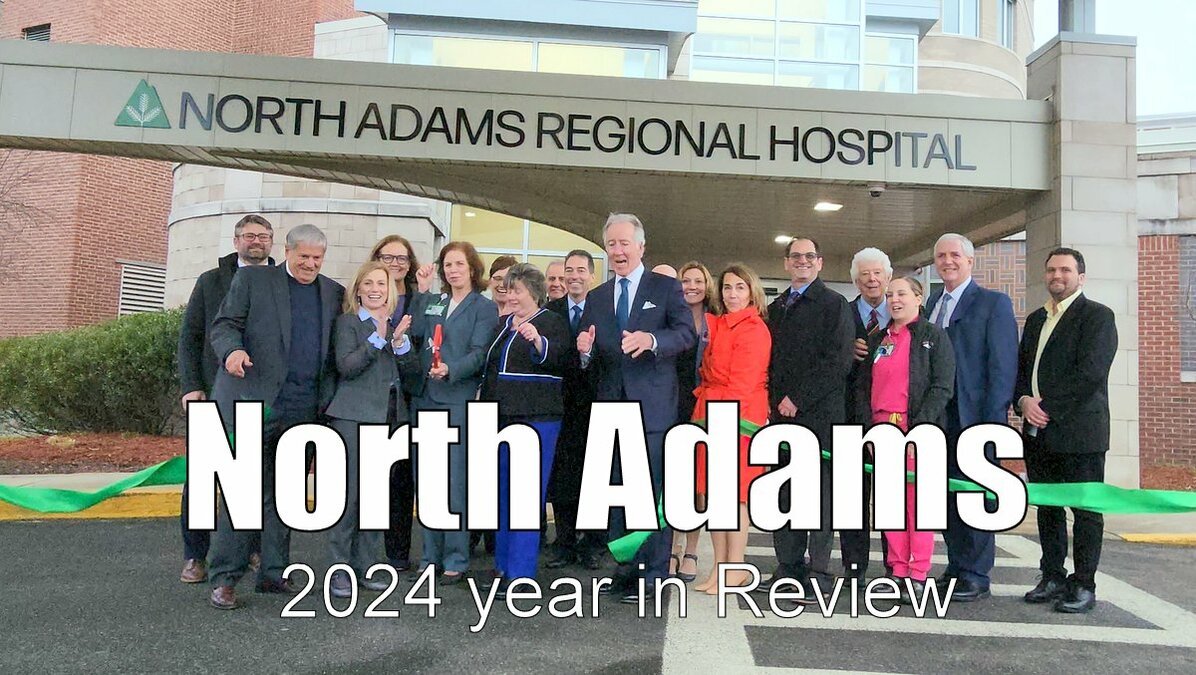
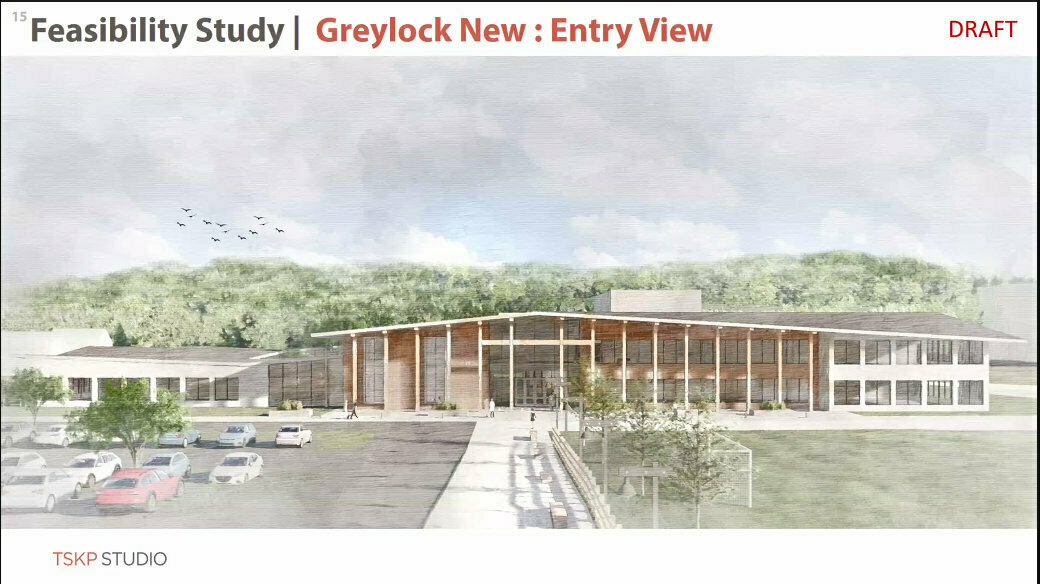
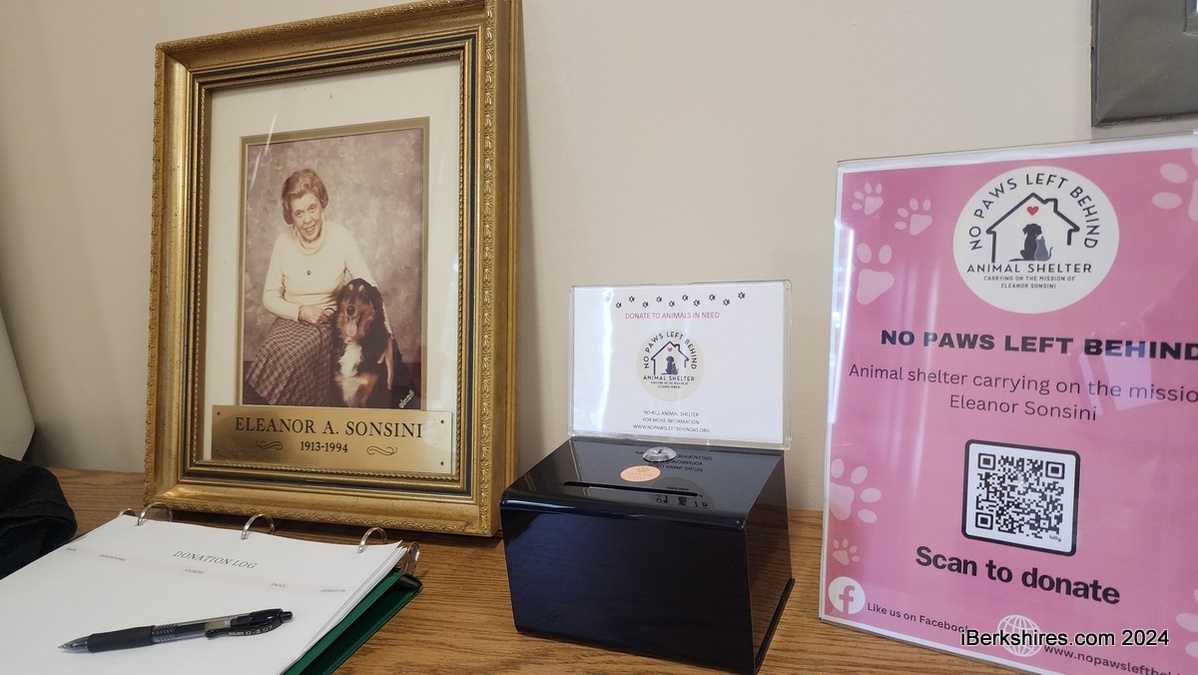
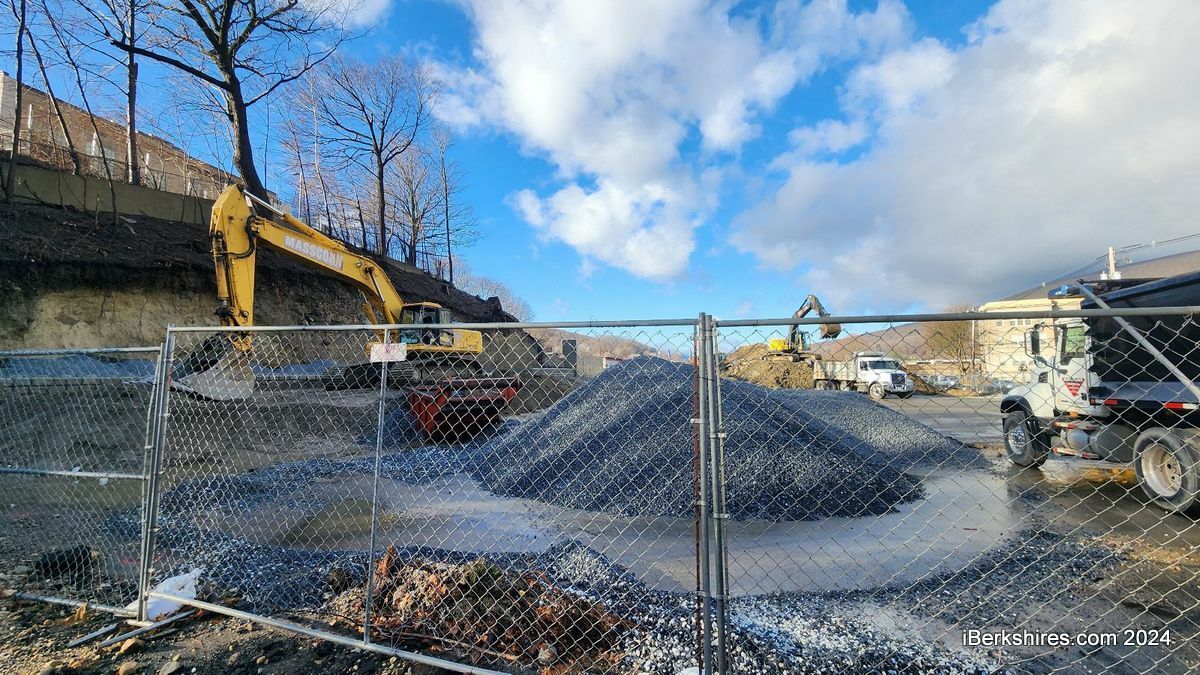
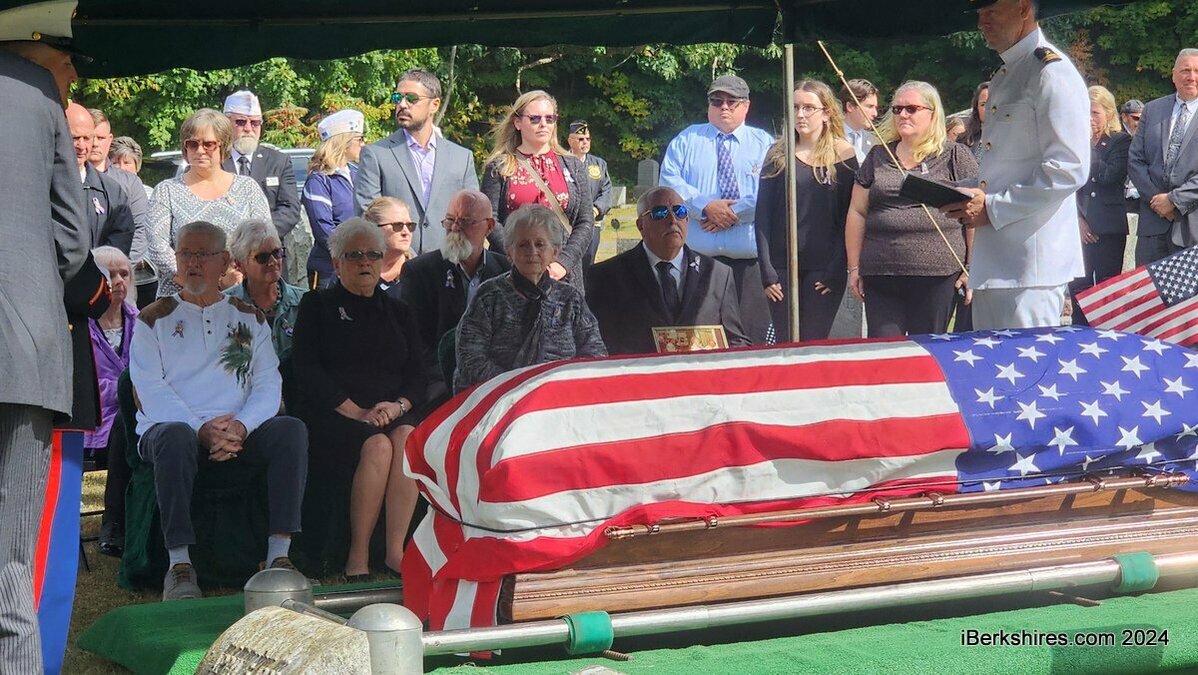
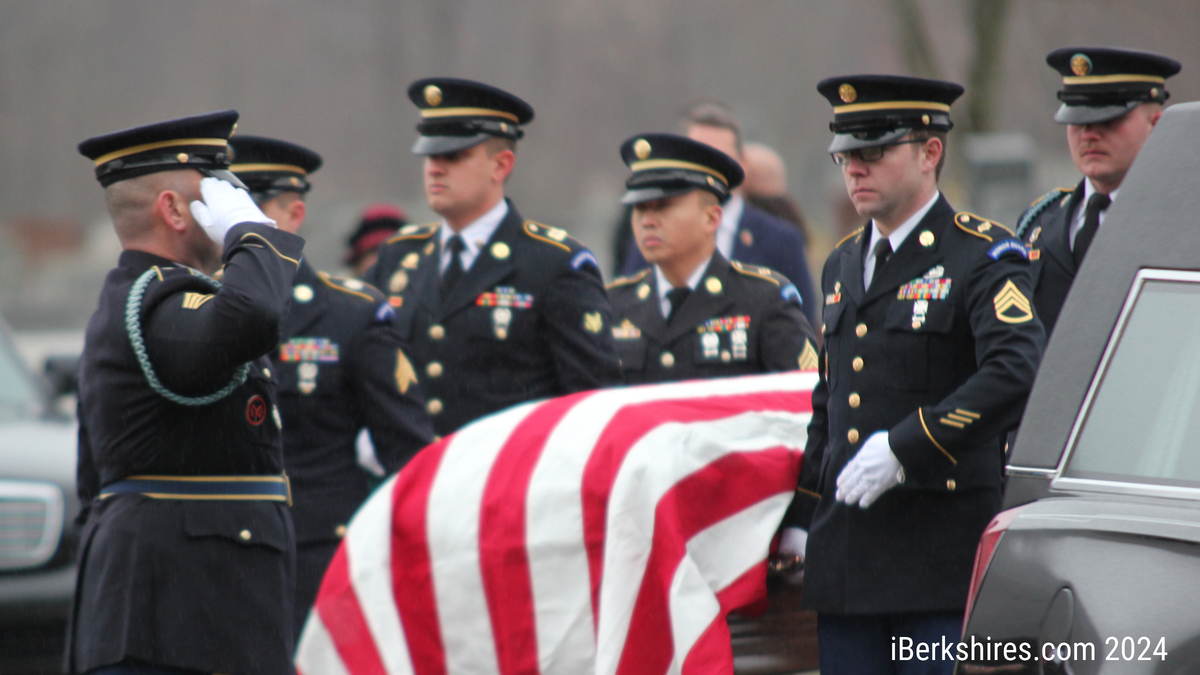
2024 Year in Review: North Adams' Year of New Life to Old Institutions
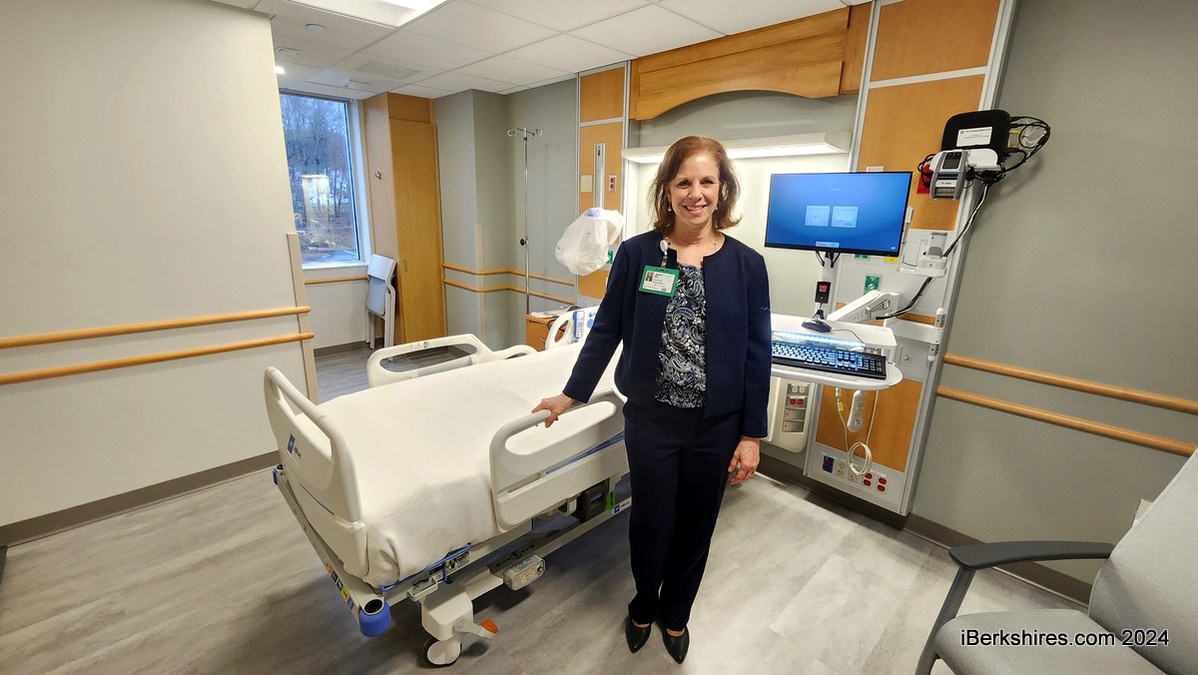
President and CEO Darlene Rodowicz poses in one of the new patient rooms on 2 North at North Adams Regional Hospital.
But in 2024, exactly 10 years to the day, North Adams Regional was revived through the efforts of local officials, BHS President and CEO Darlene Rodowicz, and U.S. Rep. Richard Neal, who was able to get the U.S. Health and Human Services to tweak regulations that had prevented NARH from gaining "rural critical access" status.
It was something of a miracle for North Adams and the North Berkshire region.
Berkshire Medical Center in Pittsfield, under the BHS umbrella, purchased the campus and affiliated systems when Northern Berkshire Healthcare declared bankruptcy and abruptly closed in 2014. NBH had been beset by falling admissions, reductions in Medicare and Medicaid payments, and investments that had gone sour leaving it more than $30 million in debt.
BMC had renovated the building and added in other services, including an emergency satellite facility, over the decade. But it took one small revision to allow the hospital — and its name — to be restored: the federal government's new definition of a connecting highway made Route 7 a "secondary road" and dropped the distance maximum between hospitals for "mountainous" roads to 15 miles.
"Today the historic opportunity to enhance the health and wellness of Northern Berkshire community is here. And we've been waiting for this moment for 10 years," Rodowicz said. "It is the key to keeping in line with our strategic plan which is to increase access and support coordinated countywide system of care."
The public got to tour the fully refurbished 2 North, which had been sectioned off for nearly a decade in hopes of restoring patient beds; the official critical hospital designation came in August.
The big story for the city was definitely the reopening of the 139-year-old hospital, but close behind was the authorization for a $65 million elementary school.
Greylock Elementary in the West End had been deemed in need renovation for years and the city had tried to convince the Massachusetts School Building Authority to consider a two-school project with what was then Conte Middle School back in 2011. That was a no-go for the state and the 70-year-old Greylock was put on the back burner until about 2019. But the pandemic and other factors led the project to be shelved again — until the MSBA came back the following year with the suggestion the city look at both Brayton Elementary and Greylock with the understanding one of them would close.
After a year of research and study, the School Building Committee voted to go with construction of a brand-new Greylock as the most feasible and long-term solution to the city's educational needs.
In the meantime, the old Greylock was closed at the end of the 2024 school year in large part because aged building's heating system was on the verge of collapse.
The decision was not without controversary. Opponents cried foul over the School Building Committee's use of enrollment data and pointed to the cost of the city's $20 million share over the next 30 years. The City Council unanimously endorsed the project but voters only approved a Proposition 2 1/2 debt exclusion vote to allow the borrowing by 135 votes.

The pool at the newly renamed North Adams Recreation Center reopened this fall after being empty for nearly 18 months.
The organization had been in the city since 1886 and moved to Brayton Hill in 1971 after its downtown building was targeted for demolition as part of urban renewal. By 1990, the Y was struggling financially and the city purchased its land and assets to clear its debt and to provide a location for the new and attached Brayton School. It was leased back to the nonprofit, which was responsible for its upkeep.
Mayor Jennifer Macksey described the condition of the building as "gross" after the Y left and American Rescue Plan Act funds were invested in repairing the pool roof and cleaning, painting and upgrading the rest of the building.
The pool finally reopened in November after intense scrubbing and a new HVAC system installed to control humidity. The mayor hopes to maintain the building as a city recreation center and has been in talks with organizations who might operate it.
The year also saw the opening of North County's first animal shelter with No Paws Left Behind setting up in the dog pound at the city yard. The shelter will take care of dogs picked up by the city's animal control officer but also take surrenders and offers adoptions for cats and dogs.
No Paws is the successor to the Eleanor Sonsini Animal Shelter in Pittsfield. Manager Noelle Howland had been in charge of Sonsini when it closed last summer and launched a fund drive to try to keep shelter open in some form.
Two big projects in the making saw some movement this year as well. The Hoosic River Revival and the city are working with the U.S. Army Corps of Engineers on a $3 million, three-year engineering and feasibility study for the 70-year-old flood control system. Neal was able to secure $700,000 for the project, U.S. Sen. Edward Markey stopped by to express support and surveyors were in the city taking measurements in this summer.
The city's Connecting Communities grant study kicked off in April. The $750,000 grant with partner Massachusetts Museum of Contemporary Art will look at possibilities for the decades old Central Artery project that sent a four-lane highway through the heart of the city including the now crumbling Veterans Memorial Bridge. The goal is to better connect the museum to the downtown and restore the divided city. Stoss Landscape Urbanism of Boston is leading the study.
The year did see the disappearance of a landmark on historic Eagle Street: the Moderne Studio building. The rear of the three-story brick building collapsed in March and officials deemed it a public hazard that needed an emergency demolition. That demolition took weeks as the 150-year-old structure was taken apart by hand to prevent its collapse on the building next door, now Eagle Street Cafe.
Business
There were a number of openings and closings this past year, with what was hoped to be a major employer shutting down before it really fully opened. The city had celebrated the $21 million Temescal Wellness cultivation facility setting up in the former Crane building on Curran Highway but the high cost of business and a supply glut of cannabis led the company to lay off staff and shut the doors before the end of the year.
DiLego Jewelry ended a nearly century run serving the North Berkshire community when owner Cindy Lamore, whose great uncle Frank DiLego opened the store on Main Street in the late 1930s, retired. Another longtime family business, West Oil, changed hands when owners Robert and Ann West decided it was time for them to retire as well.
Steeple City Plaza was sold twice in 2024, the first time in February when V&V Liquors also closed and again in July. V&V opened under new management. Workers at Mass MoCA ended a three-week strike for better pay and working conditions upon agreeing on a contract, MountainOne marked 175 years, a vegan restaurant opened in the West End Market, three food operations opened in the same building on Eagle Street, and the Planning Board gave the OK for a Starbucks development.
Dunkin Donuts at Eagle and Union Streets marked 54 years of operation with a complete remodel..
Closures included the Break Room at GreylockWorks (though another restaurant moved in), Bistro 413, Meng's Pan Asian and the Mohawk Tavern.
People in the News
Mayor Macksey started off her second term with calls for teamwork to tackle the city's challenges and three new councilors — Peter Breen, Andrew Fitch and Deanna Morrow — were sworn in.
The city also added new firefighters and police officers; a Drury High teacher was named the city's Teacher of the Year;
the late Justyna Carlson, longtime member of the Historical Society and chair of the city's Historical Commission, was inducted into the North Adams Women's Hall of Fame; a North Adams native Alison Cellana won an Emmy; Heidi Shartrand-Newell was appointed by the governor to the Children's Trust, and retiring director of Northern Berkshire Community Television, David Fabiano, was named grand marshal of the Fall Foliage Parade.
The year also saw the return of not one but two World War II casualties who were lost in the conflict. Clarksburg native Erwin S. King was laid to rest in Southview Cemetery in September and North Adams' Bernard Calvi in December.
Tags: year in review,















